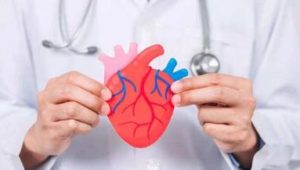
Heart failure is a condition wherein the heart muscle doesn’t pump blood. This condition causes your blood to back up which eventually leads to fluid buildup in the lungs, causing shortness of breath.
Mayo Clinic says, “heart failure can be life-threatening. People with heart failure may have severe symptoms. Some may need a heart transplant or a device to help the heart pump blood. Heart failure is sometimes called congestive heart failure.”
Heart failure is a lifelong condition and can happen due to various reasons. It can happen when due to a weakened, damaged or stiff heart. Mayo Clinic says these are some of the conditions which can cause heart failure.
“Coronary artery disease and heart attack
Coronary artery disease is the most common cause of heart failure. The disease results from the buildup of fatty deposits in the arteries. The deposits narrow the arteries. This reduces blood flow and can lead to heart attack.
A heart attack occurs suddenly when an artery feeding the heart becomes completely blocked. Damage to the heart muscle from a heart attack may mean that the heart can no longer pump as well as it should.
High blood pressure
Also called hypertension, this condition forces the heart to work harder than it should to pump blood through the body. Over time, the extra work can make the heart muscle too stiff or too weak to properly pump blood.
Heart valve disease
The valves of the heart keep blood flowing the right way. If a valve isn’t working properly, the heart must work harder to pump blood. This can weaken the heart over time. Treating some types of heart valve problems may reverse heart failure.
Inflammation of the heart muscle, myocarditis
Myocarditis is most commonly caused by a virus, including the COVID-19 virus, and can lead to left-sided heart failure.
A heart problem that you’re born with, also called a congenital heart defect. If the heart and its chambers or valves haven’t formed correctly, the other parts of the heart have to work harder to pump blood. This may lead to heart failure.
Irregular heart rhythms, arrhythmias
Irregular heart rhythms may cause the heart to beat too fast, creating extra work for the heart. A slow heartbeat also may lead to heart failure. Treating an irregular heart rhythm may reverse heart failure in some people.
Other diseases
Some long-term diseases may contribute to chronic heart failure. Examples are diabetes, HIV infection, an overactive or underactive thyroid, or a buildup of iron or protein.”
Heart failure can give rise to a wide range of health complications. Dr Charit Bhograj CEO and founder of Tricog Health speaks on the complications that can happen due to heart failure.
“In delving into the intricacies of heart failure, we recognize its profound implications extending beyond the cardiovascular realm. It is a complex cascade affecting the entire body, disrupting organ function, and challenging the very essence of well-being.
“Heart failure exceeds mere cardiac dysfunction; it triggers a series of interconnected complications from fluid retention to critical alterations in blood flow to vital organs. Initially, the heart adapts, enlarging, developing more muscle mass, and pumping faster to meet increased circulation demands. While initially beneficial, this adaptive response can lead to further complications. Categorized into left-sided and right-sided heart failure, the former involves the left ventricle’s struggle to pump enough blood, resulting in systolic failure (EF ≤ 40%) and diastolic failure (EF ≤ 50%). Right-sided heart failure results as a domino effect when the left ventricle falters, causing fluid pressure to damage the heart’s right side, and leading to venous blood backup. Congestive heart failure (CHF) results in blood congestion, swelling, pulmonary oedema, and respiratory distress while disrupting kidneys sodium and water disposal, increasing blood volume and causing tissue swelling.
“Edema, fluid retention, adds discomfort, particularly in extremities and the abdomen, compounding challenges for those with compromised heart function. Compromised blood flow further impacts in kidney dysfunction. Adding another layer of complications, Cognitive impairment affects memory and concentration, significantly affecting daily life. Recognizing these complexities is pivotal in tailoring effective treatment strategies for individuals battling heart failure.
“Comprehensive heart failure treatment involves managing symptoms, improving heart function, and addressing underlying causes. The line of treatment commences with Medications (ACE inhibitors, beta-blockers, diuretics, and aldosterone antagonists), followed by curated lifestyle modifications. One might consider advanced therapies and surgical interventions based on the severity. However, regular monitoring and follow-ups are essential for adjusting treatment plans.
“Understanding the causes and nuances of heart failure is foundational to effective treatment methodologies. Addressing heart failure necessitates a collaborative, multidisciplinary approach-healthcare professionals, patients, and caregivers working in unison to create personalized care plans. At Tricog Health, we champion early detection, optimal management, and consistent monitoring, envisioning a future where the heart beats with resilience, and life is filled with vibrant vitality.”
Speaking to MSN Health, Dr. Gustavo Campos, Doctor of Medicine said, “Heart failure will lead to difficulty in pumping blood to the rest of the body. This way, some organs, and even the own heart, may suffer when the disease it’s advanced. The patient may have pulmonary oedema, kidney failure, arrhythmia, anaemia, stroke and liver congestion.”




 Driving Naari Programme launched in Chandigarh
Driving Naari Programme launched in Chandigarh






























